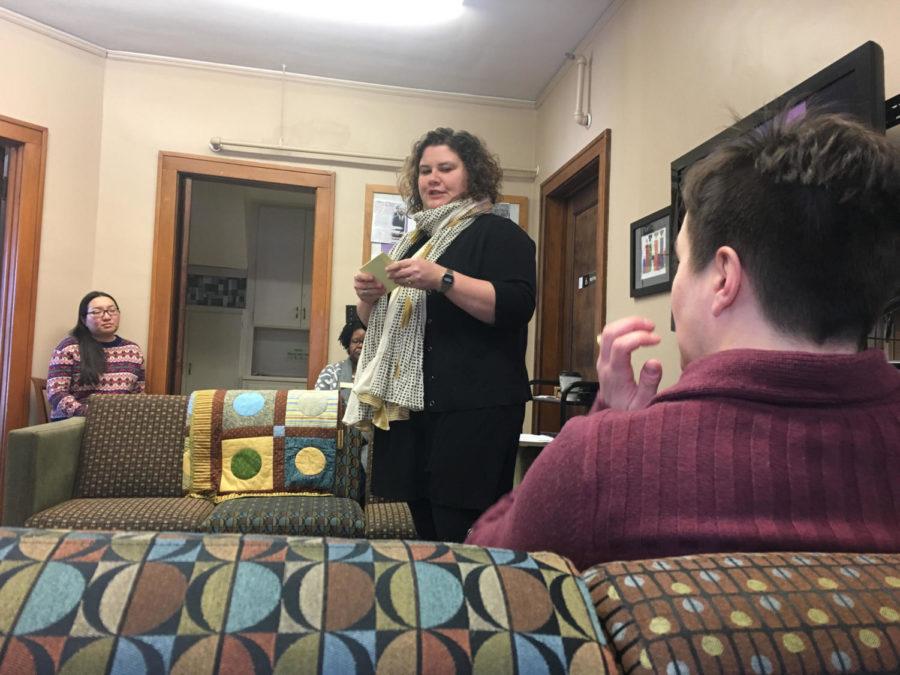First Feminist Friday of the year touches on women and negotiation
January 12, 2018
Negotiation is a topic that is not talked about much in American culture. The idea of negotiating a higher salary or better benefits can strike fear in anyone. Those who attended this week’s Feminist Friday got a first hand look at how to change the culture around negotiation.
Dr. Abby Dubisar, assistant professor in English, led a discussion on how to overcome the fear around negotiation, the reasons behind this fear and how to find resources to help with the negotiation process.
“It’s become a bit of a passion for me in working with my students at Iowa State and at other institutions,” Dubisar said. “Negotiation is a feminist issue.”
Throughout the discussion, Dubisar referenced a large portion of her facts from a book titled “Women Don’t Ask: Negotiation and the Gender Divide” by Linda Babcock and Sara Laschever. Throughout the book, many strategies for negotiation are listed, along with studies and statistics that outline the inequality in negotiation.
Statistically, women are less likely to negotiate for themselves.
American women over 65 years old are more than twice as likely to be poor than men of the same age.
Over a 40 year career, a woman leaves half a million dollars on the table.
An important topic that was discussed was the idea of rejection therapy.
“This idea that we’re so afraid of rejection, it holds us back,” Dubisar said. “if we get used to rejection we would take more risks.People are trying to make a game of not fearing rejection.”
This can be as simple as asking a random stranger for five dollars and once enough people say no, you get use to it.
It’s important to start “seeing ‘no’ as the beginning, not the end,” Dubisar said. “If you can’t get a higher salary, negotiate other things.”
Some other negotiable topics include responsibilities, office space provided, vacation time, contracts and the technology received. These items can also depend on the job you are being hired for.
“Ask for what you need in order to thrive,” Dubisar said.
Another issue outlined in the discussion was how to start the conversation. Annual performance reviews can be a good time, but realistically, anytime can be a good time to negotiate.
Dubisar also said people should not just think about negotiation in a professional setting, but also in a personal setting.
“I’m often surprised that more of my students don’t ask for extensions,” Dubisar said.
Negotiation varies between cultures but is not a topic that needs to be feared. There are resources available to encourage healthy negotiation and having strategies for negotiation means women can advocate for their value; not doing so can impact health, equality and overall satisfaction.
“Until society accepts that it’s a good thing for women to promote their own interest and negotiate on their own behalf, women will continue to find it difficult to pursue their dreams and ambitions in straightforward and effective ways,” Linda Badcock and Sara Laschever said in “Women Don’t Ask.”







